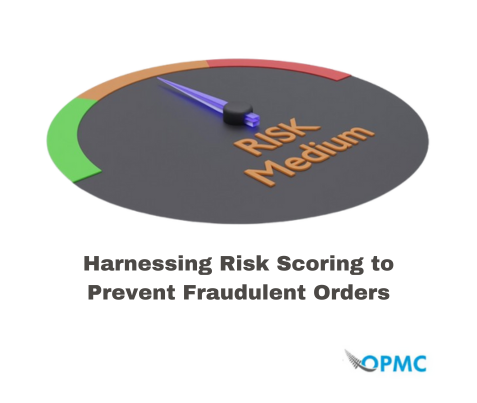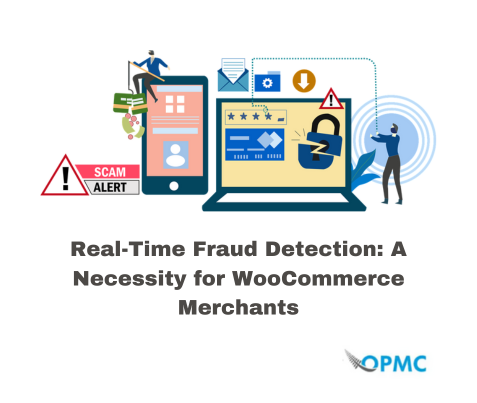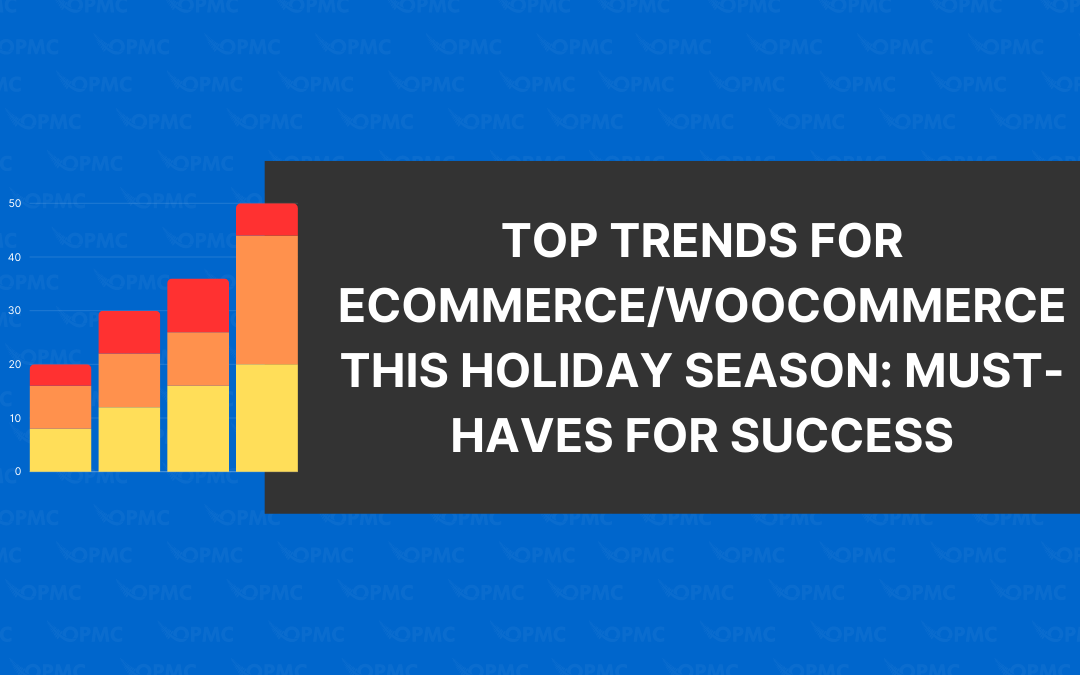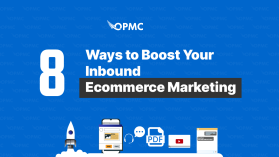Ecommerce accounting is the process of recording, monitoring, and reporting financial activities in a way that allows you to make informed business decisions. The main tool for ecommerce accounting is having some form of software to enter this critical business data.
Unfortunately, there are many issues that can crop up if you haven’t taken the time to properly set up your systems. You want your ecommerce business to be running in the background while you focus on growth or finally taking that family vacation you’ve always wanted.
We at OPMC want to help you avoid some of these situations by pointing out the more common mistakes ecommerce store owners make in their accounting. Let’s dive into our list.
1 – Not separating personal and business finances
It’s important that you separate your personal and business finances. If you don’t, it will be more challenging to keep track of the money coming in and going out of your business. You may also end up paying more in taxes or getting hit with interest on the money you borrow to run your business.
To help keep things straight, use a separate bank account for any transactions related to your ecommerce business (such as paying for supplies) so that they don’t get mixed up with other personal expenses.
2 – Failing to budget or track expenses
If you’re not budgeting and tracking your expenses, you’re setting yourself up for failure.
The importance of budgeting and tracking can’t be overstated. These two tools are critical to making smart business decisions and improving your business’ success. While a simple spreadsheet can help, accounting software is the better solution. That way, you avoid overspending or missing out on future growth opportunities.
3 – Not keeping records of sales tax paid
Sales tax is a significant expense for many ecommerce businesses. If you’re not keeping track of the amount of sales tax you’ve paid, you could be in for some trouble at the end of the year.
You’ll need this information to determine how much sales tax to pay on your income taxes, so it’s essential to keep tabs on this as well as any other expenses that are deductible from your gross income, such as office supplies and advertising costs.
4 – Not tracking inventory properly
One of the most common ecommerce accounting mistakes is not tracking inventory properly. Inventory management is an important aspect of ecommerce business, as it involves keeping an eye on the products you have in stock and knowing when to replenish them so that you can meet demand.
Fortunately, there are several ways to track inventory. You can use software like ProfitWell or Shopify’s built-in tools (or even use a spreadsheet), which will automatically keep track of how many units are sold each day as well as their cost.
5 – Not looking at reports
Reporting is the only way to understand how your business is doing, how your customers are behaving, and how your finances are working.
Reports help you make better decisions about what you do next. If you want to be an effective ecommerce entrepreneur, then it’s critical that you understand what kind of information your reports provide and how they can benefit your business goals.
6 – Forgetting to plan for taxes
It is important to plan for taxes, but you can still run into trouble if you don’t know your local area’s tax laws and regulations. Tax laws change frequently, so it is crucial to have an accountant who is up to date on changes in the law as well as how they apply to your business.
An accountant will help make sure that you do not miss any tax deductions or credits that could save you money at tax time.
If you do not have an accountant or at least a bookkeeper, then be sure to record all business transactions of your ecommerce online store, so your end-of-year taxes stay organized.
7 – Misunderstanding revenue and profit
Revenue is the amount of money you bring in from your business, while profit is the difference between revenue and expenses. If you have more revenue than expenses, you’ll have a profit. If not, then your business will lose money.
It might be a small designation, but if you think you have earned $20,000 in sales for a month without considering your expenses or debts, you may actually not have turned a profit.
8 – Not reconciling accounts
Reconciliation is a process of comparing two different sets of records to identify differences. This helps ensure that each set of documents is accurate and consistent, thereby improving the integrity of your financial statements.
Most of the time, you will reconcile your financial record keeping in a software application like QuickBooks or Odoo and then compare those to your actual accounts (bank, credit cards, etc.).
The Best Solution – Automation through Accounting Software & Plugins
If you’re serious about using ecommerce to grow your business and make a profit, then automation through accounting software is the best solution.
Accounting software will help you keep your finances separate from your business funds so that you can easily track how much money is coming in and going out of each account. This allows you to manage all your finances in one place without needing to manually record every transaction yourself or use an expensive bookkeeper.
Many of our clients from OPMC utilize Odoo for their online stores. That is why we built an Odoo for WooCommerce plugin that automates the transactional information on your online store and sends it to your accounting software. This drastically reduces your manual intervention, so you stay organized and have more time for critical business needs.
Everyone has to deal with the challenges of potential accounting errors or mistakes. Follow these preventative tips, and you should have no problem getting your books in order to grow your ecommerce business.
Download Odoo For WooCommerce plugin!
This plugin automates the transactional information on your online store and sends it to your accounting software.








